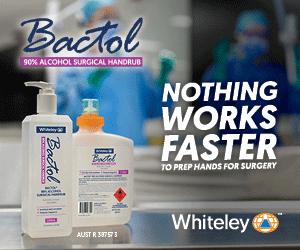NPs provide a range of assessments and treatments, have a broad scope of practice, and the same prescribing authority as doctors or medical practitioners; these services are funded and subsidised by the Ministry of Health (MOH) and they can work across the spectrum, influence health services and wider professions.
I am an NP in Te Tai Tokerau (Northland). Nearly 10 years ago, I moved to Whangārei. As a comprehensive RN, I worked for organisations including residential care homes, general practices, and for the Northland DHB hospital.
I completed a clinically focused master’s degree from the University of Auckland.
Most of the current NP workforce are in general practice, due to a shortage of doctors or GPs in primary health care. As a primary health care NP, my job includes, but is not limited to:
- Registering patients under my care for both short (acute) as well as long-term care. Completing a more thorough assessment of their health (telehealth or face-to-face).
- Ordering and interpreting diagnostic tests. Prescribing medicines including controlled drugs (Class A, B & C).
- Referring to specialists as required or liaising with secondary care.
- Completing certifications (such as driver’s licence, ACC18, WINZ and insurance).
- Performing skin biopsies, minor surgeries, and arthrocentesis, joints, or trigger finger.
- Ordering intravenous infusions, antibiotics, vaccinations, and procedures etc.
Is an NP pathway a possibility?
If you are an RN and passionate for change and ready for a challenge over four to five years, then this is for you.
Which nursing area is best for me to develop this role?
The area you are practising now is the best space for your growth. For clarity, you must be a clinically interested person, hands-on with assessments, monitoring, care and follow-up. If you have more passion for education, management or leadership roles, this may not be your best choice.
What is the minimum educational qualification required?
You must complete a Nursing Council accredited master’s degree programme. The best place to start is contacting your post-graduate education coordinator at your DHB or PHO.
How long must I be in practice first?
A minimum of four years’ experience in a specific area of practice is required. Some universities require at least three years of full-time practice in the designated area.
Do I need employer support?
Yes, you must have employer commitment to support you through the developmental stage as well as an assurance of employment at the end before entering NP practicum programmes.
Do you need a doctor or GP at any stage?
NPs are authorised prescribers; no reporting is legally required to any clinicians like GPs or NPs except the supervision required in first year post registration. However, as an excellent clinician, you are expected to maintain a collegial relationship with GPs, NPs, pharmacists, RNs, specialists, management and multi-disciplinary teams.
How does your patient see you?
Every revolutionary role takes time for acceptance. From most NP note books, the community sees you as a primary provider, a person authorised to take decisions on their health. Some call you a “doctor”, others call you a “doctor-nurse” or “nurse-doctor”: it’s our responsibility to disclose our role as NP to maintain a long-term trust as well as to deliver our best care possible.
I would like to see a college for NPs set up at NZNO to support our current and future NPs.





